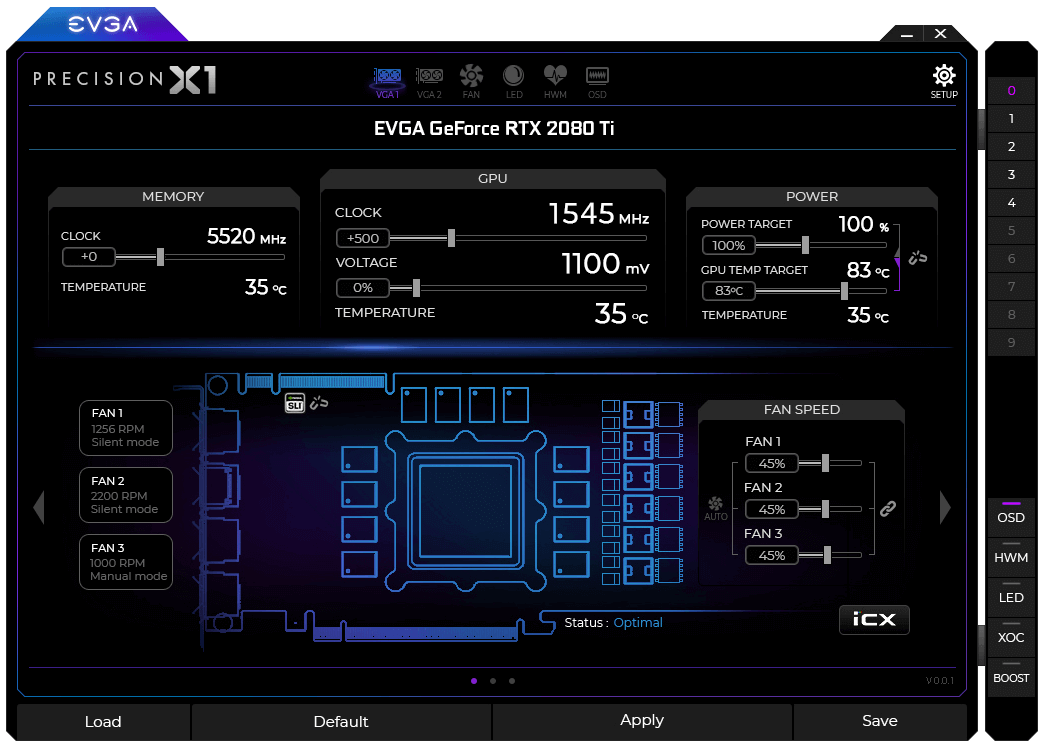Cpu Fan For Overclocking: Boost Performance

When it comes to overclocking, one of the most critical components to consider is the CPU fan. A high-quality CPU fan can make all the difference in maintaining a stable and efficient system, especially when pushing the processor to its limits. In this article, we’ll delve into the world of CPU fans for overclocking, exploring the key considerations, top recommendations, and expert tips to help you squeeze out every last bit of performance from your system.
Understanding the Importance of CPU Cooling
Before we dive into the specifics of CPU fans, it’s essential to understand the importance of proper cooling. When you overclock your CPU, you’re essentially increasing the voltage and frequency to achieve higher performance. However, this also generates more heat, which can lead to throttling, instability, and even damage to the processor. A good CPU fan can help mitigate these issues by providing efficient heat dissipation, allowing you to maintain a stable overclock and prevent overheating.
Key Considerations for CPU Fans
When selecting a CPU fan for overclocking, there are several key factors to consider:
- Cooling Performance: Look for fans with high airflow and static pressure ratings, as these will be better equipped to handle the increased heat generated by overclocking.
- Noise Level: While a high-performance fan may be tempting, noise levels can be a significant concern, especially if you plan to use your system in a quiet environment. Look for fans with low decibel ratings or adjustable speed settings.
- Compatibility: Ensure the fan is compatible with your CPU socket and motherboard. Some fans may require additional mounting hardware or have specific installation requirements.
- Power Consumption: Overclocking can increase power consumption, so look for fans with low power draw to minimize the impact on your system’s overall power efficiency.
Top CPU Fan Recommendations for Overclocking
Based on our research and expert analysis, here are some top CPU fan recommendations for overclocking:
- Noctua NH-U14S TR4-SP3: This fan is a popular choice among overclockers, offering exceptional cooling performance and low noise levels.
- Corsair Hydro Series H115i RGB Platinum: This liquid cooling solution provides excellent heat dissipation and customizable RGB lighting.
- Thermaltake Floe Riing RGB 360: This fan features a unique design with 16 individually addressable RGB LEDs and a high-performance cooling system.
Expert Tips for Optimizing CPU Fan Performance
To get the most out of your CPU fan, follow these expert tips:
- Monitor Temperatures: Keep a close eye on your CPU temperatures to ensure your fan is performing effectively. Use software like HWMonitor or AIDA64 to track temperatures and adjust your fan settings accordingly.
- Adjust Fan Curves: Many modern motherboards and fan controllers allow you to adjust fan curves, which can help optimize performance and noise levels.
- Clean Dust Regularly: Dust buildup can significantly impact fan performance, so make sure to clean your fan and system regularly.
- Consider a Fan Controller: A fan controller can help you optimize fan performance, allowing you to adjust speeds, monitor temperatures, and customize lighting effects.
Case Study: Overclocking with a High-Performance CPU Fan
To illustrate the benefits of a high-performance CPU fan, let’s consider a case study. A user overclocks their Intel Core i9-11900K to 5.0 GHz, resulting in a significant increase in heat generation. By installing a Noctua NH-U14S TR4-SP3 fan, the user is able to maintain a stable temperature of 80°C, even during intense workloads. This allows for a 10% increase in performance, thanks to the improved cooling efficiency.
Future Trends in CPU Cooling
As CPU technology continues to evolve, we can expect to see significant advancements in cooling solutions. Some future trends to watch include:
- Liquid Metal Cooling: This emerging technology uses liquid metal to transfer heat, offering potentially significant improvements in cooling efficiency.
- Advanced Materials: Researchers are exploring new materials with enhanced thermal conductivity, which could lead to more efficient cooling solutions.
- AI-Optimized Cooling: Artificial intelligence may play a role in optimizing cooling performance, allowing for real-time adjustments and improved efficiency.
Conclusion
In conclusion, a high-quality CPU fan is essential for overclocking, providing the necessary cooling performance to maintain a stable and efficient system. By considering key factors such as cooling performance, noise level, and compatibility, you can select the perfect fan for your needs. Remember to monitor temperatures, adjust fan curves, and clean dust regularly to optimize performance. With the right CPU fan and expert tips, you can unlock the full potential of your system and achieve exceptional performance.
What is the best CPU fan for overclocking?
+The best CPU fan for overclocking depends on various factors, including cooling performance, noise level, and compatibility. Some top recommendations include the Noctua NH-U14S TR4-SP3, Corsair Hydro Series H115i RGB Platinum, and Thermaltake Floe Riing RGB 360.
How do I choose the right CPU fan for my system?
+When choosing a CPU fan, consider factors such as cooling performance, noise level, compatibility, and power consumption. Ensure the fan is compatible with your CPU socket and motherboard, and look for high airflow and static pressure ratings.
Can I use a stock CPU fan for overclocking?
+While it's possible to use a stock CPU fan for overclocking, it's not recommended. Stock fans are typically designed for standard operating conditions and may not provide adequate cooling for overclocked systems. A high-performance CPU fan can help maintain a stable temperature and prevent overheating.
By following these guidelines and expert recommendations, you can select the perfect CPU fan for your overclocking needs and unlock the full potential of your system. Remember to stay up-to-date with the latest developments in CPU cooling technology and adjust your approach as needed to achieve optimal performance.
